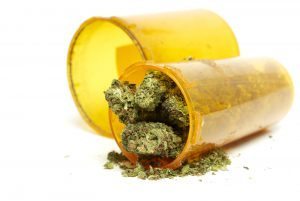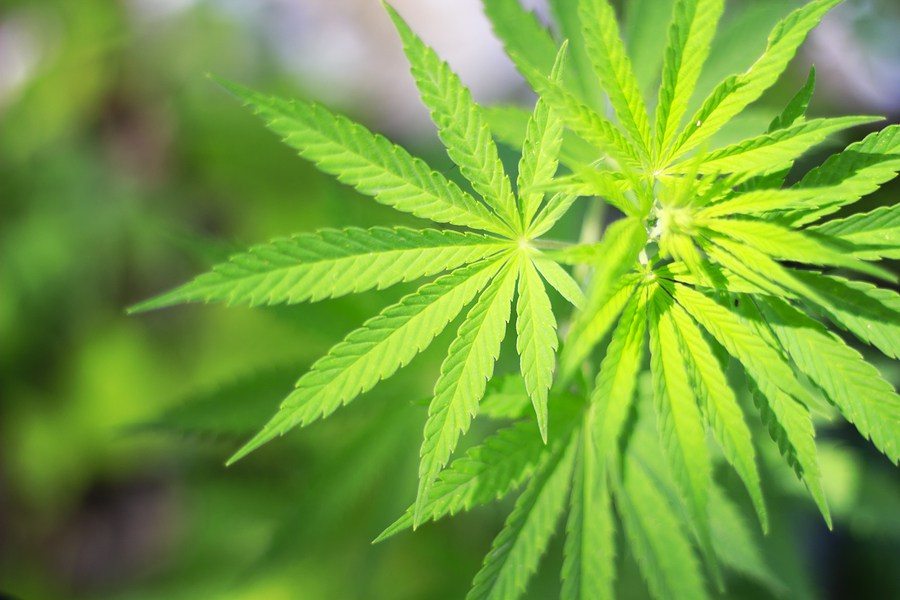The short answer to this question is no: medical marijuana is not bad for your teeth, tongue, gums, or lips. While some studies have claimed that Cannabis is linked to oral cancer, these findings are subject to debate, as we’ll explore in this article. That being said, dry mouth from smoking Cannabis can lead to tooth decay and gum disease, as can neglecting dental care due to drowsiness caused by marijuana. Fortunately for medical marijuana patients, it’s easy to avoid these problems by following some basic care tips.
Does Smoking Marijuana Cause Oral Cancer?
If you’re a regular reader of our Cannabis blog, you may have seen our article about marijuana myths. If you didn’t, here’s what you should know: unlike smoking tobacco, smoking Cannabis will not significantly increase your risk of developing cancer. That’s because Cannabis and tobacco smoke are not equally carcinogenic (cancer-causing), as the Harm Reduction Journal noted in a 2005 study of the same name.
As we pointed out in our deconstruction of Cannabis myths, tobacco products like dip and cigarettes are loaded with chemical compounds called nitrosamines. Nitrosamines can be found in all kinds of consumer products, including makeup and condoms, and some of them don’t have any harmful effects on human health. However, the nitrosamines in tobacco products – aptly named tobacco-specific nitrosamines – are highly carcinogenic. The worst offenders are referred to as NNN and NNK, and are known to encourage the growth of malignant tumors.
NNN, NNK, and other carcinogenic nitrosamines are formed during the process of air-curing tobacco – not marijuana – hence the term “tobacco-specific.” Cannabis does not contain these nitrosamines, and far from possessing carcinogenic qualities, can actually help hinder the growth of certain tumors, such as gliomas (aggressive tumors which form in the brain or spine).
During recent years, various sources have asserted that smoking marijuana increases the risk of developing oral cancers. For instance, the Australian Dental Journal published a 2005 study which stated that “Cannabis smoke acts as a carcinogen and is associated with dysplastic changes and pre-malignant lesions within the oral mucosa.” However, these claims are controversial and have been countered by other researchers.
For instance, a 2008 study published in Otolaryngology – Head and Neck Surgery found that “an increased risk of cancer was found with increasing tobacco use, alcohol consumption, and decreased income but not increasing Cannabis use.” Additionally, a study published last year in Cancer Epidemiology, Biomarkers, and Prevention noted that “associations of marijuana use with oropharyngeal and oral tongue cancer are consistent with both possible pro- and anticarcinogenic effects of Cannabinoids,” and that “additional work is needed to rule out various sources of bias.”

Cavities, Dry Mouth, and Gum Disease: Tooth Care Tips for Cannabis Patients
Even though smoking Cannabis is unlikely to increase your risk of developing oral cancer, there are still some dental hazards medical Cannabis patients should be wary of. Though varied, these hazards all stem from a single cause: dry mouth, or “cottonmouth,” which is a common side effect of Cannabis smoke inhalation. When Cannabinoids (such as THC) bind to CB1 and CB2 receptors located in the jaw’s submandibular glands, the glands lose their ability to receive input from the parasympathetic nervous system, causing a disruption in normal saliva production. The result? Dry mouth.
It’s important to take dry mouth seriously, because this “mild” condition is actually anything but. Chronic dry mouth – technically known as xerostomia, from the Greek for “xeros” (“dry”) and “stoma” (“mouth”) – can open the door to a host of negative health effects, including:
- Decreased or altered sense of taste.
- Difficulty swallowing and speaking clearly.
- Sore, crusty, cracked skin at the corners of the mouth, which is called angular cheilitis or perleche.
- Sore throat.
- Accumulation of dental plaque.
Dental plaque, a build-up of bacteria which appears as a slimy white or yellow substance, is of particular concern because it can lead to:
- Cavities and tooth decay, known as dental caries from the Latin for “rotten.” Untreated decay and cavities will continue to worsen with time, which might eventually necessitate a costly and unpleasant root canal or tooth extraction. In addition to causing a substantial amount of pain, tooth decay can also lead to halitosis (chronic foul breath) and infection.
- Gum disease, which is also referred to as periodontal disease. Some common types of gum disease include:
- Gingivitis – Inflammation (“-itis”) of the gums. Warning signs include swelling, soreness, discoloration, tenderness, and bleeding.
- Periodontitis (Pyorrhea) – Inflammation of the periodontium, or tissue around the teeth. Warning signs include bad breath, unpleasant taste, loosening of the teeth, and the formation of abscesses, or small pockets of pus.
Some plaque build-up is normal, and occurs naturally in everyone. However, Cannabis users have an increased susceptibility due to frequent dry mouth. Therefore, medical marijuana patients should be extra-diligent when it comes to scheduling regular dental cleanings. The American Dental Association recommends at least one annual cleaning at minimum, so Cannabis patients may want to consider scheduling a cleaning every six months.

In the meantime, you can reduce the effects of dry mouth by following these simple, affordable precautions:
- When smoking, be sure to keep water on hand, and keep reminding yourself to take a sip every couple of minutes. This will make sure your mouth gets continually rehydrated, instead of drying out because you chugged all your water at once. (And yes, we do mean water. Sugary beverages like soda and fruit juice will only dry out your mouth even more. If you find water a little boring, try seltzer instead.)
- Try chewing some sugar-free gum, or sucking on a sugar-free candy, which will stimulate saliva production.
Consider purchasing a humidifier, which will increase moisture in the air. (Now that the dry winter season is upon us, a humidifier might be a good idea, anyway.) If you’re willing to go with a no-frills model, you can spend as little as $15 or $20, depending on where you shop. - Stop using any mouthwashes that contain alcohol. Mayo Clinic recommends Biotene Dry Mouth Oral Rinse or ACT Total Care Dry Mouth Rinse as alternatives.
- Try to cut down on your caffeine intake. If you’re not ready to give up your morning fix completely, experiment with switching from coffee to tea, or to a different blend or brand of coffee with a lower caffeine content.
- Remember to always breathe through your nose instead of your mouth.
- Consider switching from smoking to vaporizing, which involves steam. (For more information, see our article about different methods of using Cannabis.)
Last but not least, we couldn’t neglect a quick mention of “the munchies” in an article about Cannabis and dental health. Needless to say, the combination of snacking plus drowsiness equals bad news for your teeth. Each time you accidentally doze off without brushing, you give plaque and decay greater opportunity to take hold. We know it’s tough to fight fatigue when you’re on the verge of drifting off, but for the sake of your teeth (and your dental care bill), always make an effort to brush before you go to bed. If nothing else, at least keep some dental floss in your nightstand. A few years from now, you’ll be glad you did.
If your quality of life is being negatively impacted by a serious medical condition, you may be a good candidate for medical Cannabis. Call Dr. Tishler at (617) 477-8886 to start discussing the health benefits of medical marijuana in a private consultation.

